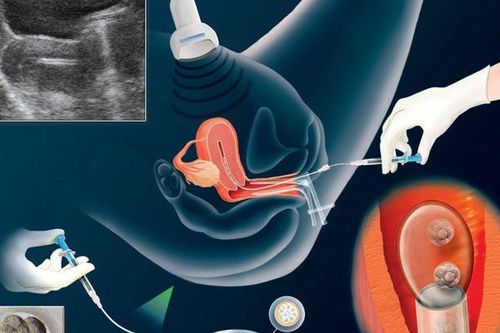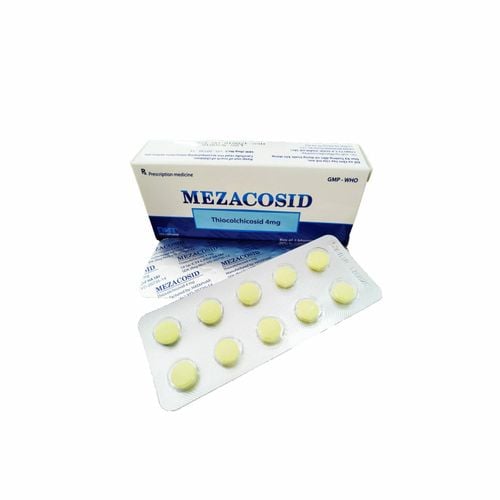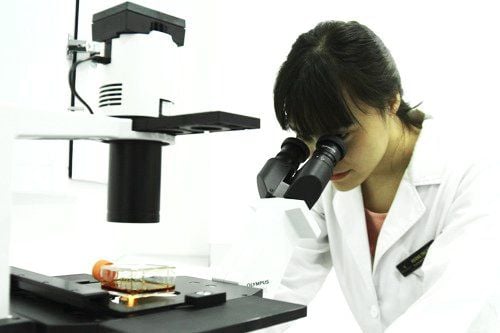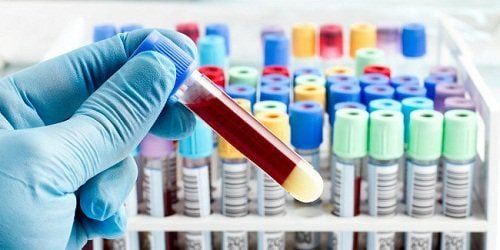This is an automatically translated article.
Lower back pain is very rarely a warning sign of cancer. However, it may be associated with certain cancers such as spine, colorectal, or ovarian cancer. If you have unexplained low back pain, you need to see a doctor for a diagnosis and treatment right away.
1. The link between lower back pain and cancer
Lower back pain that can be a sign of cancer often occurs along with other cancer symptoms. Some features of lower back pain associated with cancer include:
Back pain that doesn't seem to be related to movement or doesn't get worse with movement Back pain often occurs at night or in the morning early and go away or get better during the day Back pain persists even after physical therapy or other treatments Changes in the nature of stools and urine, such as bloody urine or bloody stools Decreased sudden, unexplained weight loss Unexplained fatigue Weakness, tingling, or numbness in your arms or legs If you have lower back pain and are worried it may be a symptom of cancer, see your doctor to find out the cause. Causes of back pain and early treatment.
2. What type of cancer does lower back pain indicate?
Lower back pain can be related to cancers near that area, such as:
Spine cancer: Refers to tumors that develop in the bones of the spine or the protective membranes around the spinal cord. According to the American Association of Neurosurgeons, 30 to 70 percent of people with cancer will metastasize to the spine. Lung cancer: Lung cancer is one of the most common cancers that metastasize to the spine. Lung cancer can also press on the spine, affecting the ability of nerve conduction to the lower back. People with lung cancer often have symptoms of fatigue, shortness of breath, coughing up blood and sputum along with low back pain. Breast cancer: Breast cancer can spread to the back, can also cause compression of the nerves connected to the spine causing lower back pain. However, back pain is very rarely a warning symptom of breast cancer. Gastrointestinal cancer: Stomach cancer, colorectal cancer can all cause low back pain. This pain radiates from the cancer site to the lower back. If you have gastrointestinal cancer, besides low back pain, there may also be other symptoms such as sudden weight loss, blood in the stool. Blood and tissue: Blood and tissue cancers such as multiple myeloma, lymphoma, and skin melanoma can all cause lower back pain. In addition, other types of cancer that can cause back pain include ovarian cancer, kidney cancer, thyroid cancer, and prostate cancer.
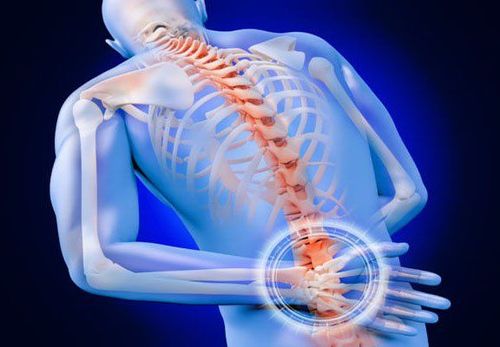
Đau lưng dưới có thể liên quan đến ung thư cột sống
3. From lower back pain to cancer diagnosis
If lower back pain is suspected to be a symptom of cancer, your doctor will ask carefully about your cancer history and family history along with previous medical history and other related symptoms.
Because lower back pain is rarely a symptom of cancer, doctors usually won't do cancer diagnostic tests right away, but order other tests and treatments first.
However, if pain continues after physical therapy or anti-inflammatory medication, your doctor may order imaging tests and blood tests to look for an underlying cancer causing the pain. lower back or not.
4. Treatment of back pain caused by cancer
Treatments for cancer-related low back pain vary, depending on the type of cancer and how advanced it is.
For example, the doctor will recommend surgical removal of the tumor. Other treatments may include chemotherapy and radiation therapy to shrink the tumor.
Doctors may also prescribe pain relievers to help reduce pain-causing effects. Muscle relaxants can also help relieve muscle spasms that aggravate back pain.
5. When to see a doctor?
If you are worried your low back pain could be cancerous, you should see your doctor when:
Have a history of cancer Back pain that started suddenly and is unrelated to the injury Back pain seems unrelated to movement Feeling or seeing a deformity in the spine, such as a tumor
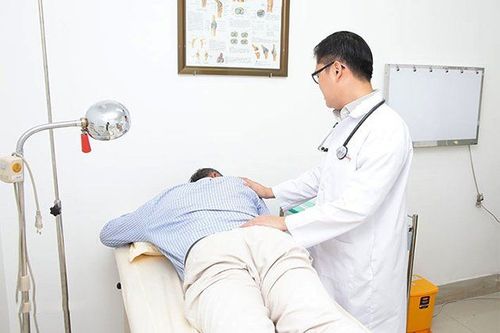
Nên đến gặp bác sĩ khi bạn có tiền sử ung thư
6. Home Remedies
At-home treatments for cancer-related low back pain include:
Cold or hot compresses : Applying a cloth ice pack or heat pack to the lower back for 10 to 15 minutes may provide relief. pain. Over-the-counter pain relievers: Taking over-the-counter pain relievers, such as ibuprofen or naproxen, can relieve back pain. Always tell your doctor before using it to make sure it doesn't affect other medications you're taking. Exercise: Gentle exercise can help keep your back muscles strong and flexible. Examples of gentle exercise include walking and stretching. Lower back pain can signal a cancer. Therefore, in the case of unexplained lower back pain, accompanied by other medical symptoms, patients should soon go to medical centers for examination and treatment.
Early cancer screening is considered the "golden key" for early detection and effective cancer prevention and treatment regimens, thereby reducing the risk of death and reducing costs for people. sick. Currently, Vinmec has been a leading medical facility in the field of early detection of cancer, whereby the high-tech cancer screening package at Vinmec gives you the opportunity to screen and develop Timely detection of disease warning risks to optimize treatment efficiency and improve quality of life.
Please dial HOTLINE for more information or register for an appointment HERE. Download MyVinmec app to make appointments faster and to manage your bookings easily.
Reference source: healthline.com




